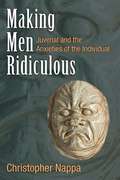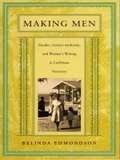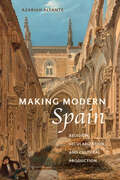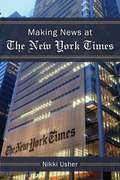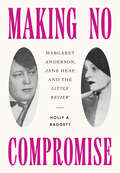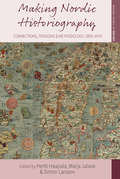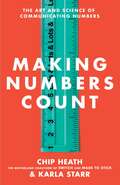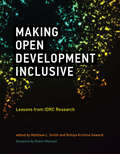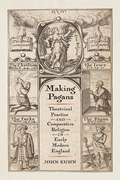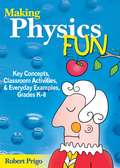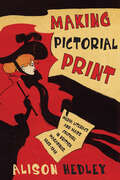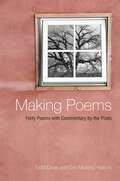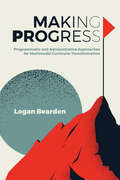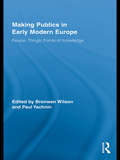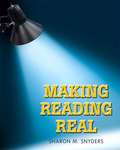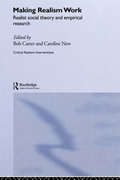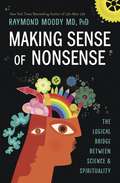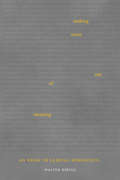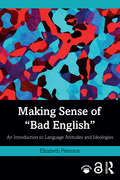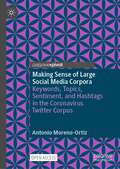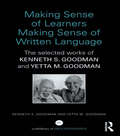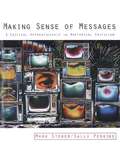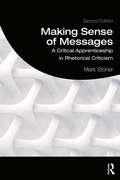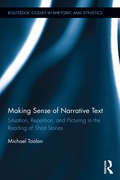- Table View
- List View
Making Men Ridiculous: Juvenal and the Anxieties of the Individual
by Christopher NappaWriting during the reign of emperors Trajan and Hadrian, Juvenal drew on Roman legend and the history of preceding imperial dynasties as a means of scrutinizing cultural upheavals in the Rome of his day. Tacky foreigners, the nouveaux riches, women who don’t know their place, bloodthirsty—even crazy—emperors and their (often worse) wives confront the reader at every turn, along with bad poets, corrupt aristocrats, gladiators, whores, false philosophers, sad-sack men in the street, and slaves. Juvenal’s poetry set the tone, and often the topics, for satirists throughout the centuries of European literature. In his sixteen verse satires, Juvenal presents speakers who decry the breakdown in traditional Roman values and the status of Roman men as they are confronted by upstart foreigners, devious and deviant women, class traitors, the power of the imperial household, and even the body itself. The satirist castigates vice and immorality even as he revels in describing them. This book locates Juvenal’s targets among the matrices of birth, wealth, class, gender, and ethnicity and walks carefully through a number of his most arresting vignettes in order to show not only what, but how, he satirizes. Moreover, the analysis shows that Juvenal’s portraits sometimes escape his grasp, and, as often as not, he ends up undermining the voice with which he speaks and the values he claims to hold dear. Individual chapters look at the satirist himself, rebellious bodies, disgraced aristocrats, uppity (even murderous) wives, and the necessary but corrupting power of money. The conclusion considers the endurance of both the targets and the rhetoric behind them in the modern world. Making Men Ridiculous will interest scholars and advanced students of ancient satire, later European satire, imperial Roman culture and literature, and class, gender, and sexuality in the ancient world.
Making Men: Gender, Literary Authority, and Women’s Writing in Caribbean Narrative
by Belinda EdmondsonColonialism left an indelible mark on writers from the Caribbean. Many of the mid-century male writers, on the eve of independence, looked to England for their models. The current generation of authors, many of whom are women, have increasingly looked--and relocated--to the United States. Incorporating postcolonial theory, West Indian literature, feminist theory, and African American literary criticism, Making Men carves out a particular relationship between the Caribbean canon--as represented by C. L. R. James and V. S. Naipaul, among others--and contemporary Caribbean women writers such as Jean Rhys, and Jamaica Kincaid, Paule Marshall, and Michelle Cliff, who now live in the United States. Discussing the canonical Caribbean narrative as it reflects national identity under the domination of English cultural authority, Belinda Edmondson focuses particularly on the pervasive influence of Victorian sensibilities in the structuring of twentieth-century national identity. She shows that issues of race and English constructions of masculinity not only are central to West Indian identity but also connect Caribbean authorship to the English literary tradition. This perspective on the origins of West Indian literary nationalism then informs Edmondson's search for female subjectivity in current literature by West Indian women immigrants in America. Making Men compares the intellectual exile of men with the economic migration of women, linking the canonical male tradition to the writing of modern West Indian women and exploring how the latter write within and against the historical male paradigm in the continuing process of national definition. With theoretical claims that invite new discourse on English, Caribbean, and American ideas of exile, migration, race, gender identity, and literary authority, Making Men will be informative reading for those involved with postcolonial theory, African American and women's studies, and Caribbean literature.
Making Modern Spain: Religion, Secularization, and Cultural Production (Campos Ibéricos: Bucknell Studies in Iberian Literatures and Cultures)
by Azariah AlfanteIn this elegantly written study, Alfante explores the work of select nineteenth-century writers, intellectuals, journalists, politicians, and clergy who responded to cultural and spiritual shifts caused by the movement toward secularization in Spain. Focusing on the social experience, this book probes the tensions between traditionalism and liberalism that influenced public opinion of the clergy, sacred buildings, and religious orders. The writings of Cecilia Böhl de Faber (Fernán Caballero), Gustavo Adolfo Bécquer, Benito Pérez Galdós, and José María de Pereda addressed conflicts between modernizing forces and the Catholic Church about the place of religion and its signifiers in Spanish society. Foregrounding expropriation (government confiscation of civil and ecclesiastical property) and exclaustration (the expulsion of religious communities), and drawing on archival research, the history of disentailment, cultural theory, memory studies, and sociology, Alfante demonstrates how Spain’s liberalizing movement profoundly influenced class mobility and faith among the populace.
Making National News
by Gene AllenFor almost a century, Canadian newspapers, radio and television stations, and now internet news sites have depended on the Canadian Press news agency for most of their Canadian (and, through its international alliances) foreign news. This book provides the first-ever scholarly history of CP, as well as the most wide-ranging historical treatment of twentieth-century Canadian journalism published to date.Using extensive archival research, including complete and unfettered access to CP's archives, Gene Allen traces how CP was established and evolved in the face of frequent conflicts among the powerful newspaper publishers - John Ross Robertson, Joseph Atkinson, and Roy Thomson, among others - who collectively owned it, and how the journalists who ran it understood and carried out their work. Other major themes include CP's shifting relationships with the Associated Press and Reuters; its responses to new media; its aggressive shaping of its own national role during the Second World War; and its efforts to meet the demands of French-language publishers.Making National News makes a substantial and original contribution to our understanding of journalism as a phenomenon that shaped Canada both culturally and politically in the twentieth century.
Making News At The New York Times
by Nikki UsherMaking News at The New York Times is the first in-depth portrait of the nation's, if not the world's, premier newspaper in the digital age. It presents a lively chronicle of months spent in the newsroom observing daily conversations, meetings, and journalists at work. We see Page One meetings, articles developed for online and print from start to finish, the creation of ambitious multimedia projects, and the ethical dilemmas posed by social media in the newsroom. Here, the reality of creating news in a 24/7 instant information environment clashes with the storied history of print journalism, and the tensions present a dramatic portrait of news in the online world. This news ethnography brings to bear the overarching value clashes at play in a digital news world. The book argues that emergent news values are reordering the fundamental processes of news production. Immediacy, interactivity, and participation now play a role unlike any time before, creating clashes between old and new. These values emerge from the social practices, pressures, and norms at play inside the newsroom as journalists attempt to negotiate the new demands of their work. Immediacy forces journalists to work in a constant deadline environment, an ASAP world, but one where the vaunted traditions of yesterday's news still appear in the next day's print paper. Interactivity, inspired by the new user-computer directed capacities online and the immersive Web environment, brings new kinds of specialists into the newsroom, but exacts new demands upon the already taxed workflow of traditional journalists. And at time where social media presents the opportunity for new kinds of engagement between the audience and media, business executives hope for branding opportunities while journalists fail to truly interact with their readers.
Making No Compromise: Margaret Anderson, Jane Heap, and the "Little Review"
by Holly A. BaggettMaking No Compromise is the first book-length account of the lives and editorial careers of Margaret Anderson and Jane Heap, the women who founded the avant-garde journal the Little Review in Chicago in 1914. Born in the nineteenth-century Midwest, Anderson and Heap grew up to be iconoclastic rebels, living openly as lesbians, and advocating causes from anarchy to feminism and free love. Their lives and work shattered cultural, social, and sexual norms. As their paths crisscrossed Chicago, New York, Paris, and Europe; two World Wars; and a parade of the most celebrated artists of their time, they transformed themselves and their journal into major forces for shifting perspectives on literature and art. Imagism, Dada, surrealism, and Machine Age aesthetics were among the radical trends the Little Review promoted and introduced to US audiences. Anderson and Heap published the early work of the "men of 1914"—Ezra Pound, James Joyce, William Butler Yeats, and T. S. Eliot—and promoted women writers such as Djuna Barnes, May Sinclair, Dorothy Richardson, Mina Loy, Mary Butts, and the inimitable Baroness Elsa von Freytag-Loringhoven. In the mid-1920s Anderson and Heap became adherents of George I. Gurdjieff, a Russian mystic, and in 1929 ceased publication of the Little Review.Holly A. Baggett examines the roles of radical politics, sexuality, modernism, and spirituality and suggests that Anderson and Heap's interest in esoteric questions was evident from the early days of the Little Review. Making No Compromise tells the story of two women who played an important role in shaping modernism.
Making Nordic Historiography: Connections, Tensions and Methodology, 1850-1970
by Marja Jalava Pertti Haapala Simon LarssonIs there a "Nordic history"? If so, what are its origins, its scope, and its defining features? In this informative volume, scholars from all five Nordic nations tackle a notoriously problematic historical concept. Whether recounting Foucault's departure from Sweden or tracing the rise of movements such as "aristocratic empiricism," each contribution takes a deliberately transnational approach that is grounded in careful research, yielding rich, nuanced perspectives on shifting and contested historical terrain.
Making Numbers Count: The Art and Science of Communicating Numbers
by Chip Heath Karla StarrA clear, practical, first-of-its-kind guide to communicating and understanding numbers and data—from bestselling business author Chip Heath.How much bigger is a billion than a million? Well, a million seconds is twelve days. A billion seconds is…thirty-two years. Understanding numbers is essential—but humans aren&’t built to understand them. Until very recently, most languages had no words for numbers greater than five—anything from six to infinity was known as &“lots.&” While the numbers in our world have gotten increasingly complex, our brains are stuck in the past. How can we translate millions and billions and milliseconds and nanometers into things we can comprehend and use? Author Chip Heath has excelled at teaching others about making ideas stick and here, in Making Numbers Count, he outlines specific principles that reveal how to translate a number into our brain&’s language. This book is filled with examples of extreme number makeovers, vivid before-and-after examples that take a dry number and present it in a way that people click in and say &“Wow, now I get it!&” You will learn principles such as: -SIMPLE PERSPECTIVE CUES: researchers at Microsoft found that adding one simple comparison sentence doubled how accurately users estimated statistics like population and area of countries. -VIVIDNESS: get perspective on the size of a nucleus by imagining a bee in a cathedral, or a pea in a racetrack, which are easier to envision than &“1/100,000th of the size of an atom.&” -CONVERT TO A PROCESS: capitalize on our intuitive sense of time (5 gigabytes of music storage turns into &“2 months of commutes, without repeating a song&”). -EMOTIONAL MEASURING STICKS: frame the number in a way that people already care about (&“that medical protocol would save twice as many women as curing breast cancer&”). Whether you&’re interested in global problems like climate change, running a tech firm or a farm, or just explaining how many Cokes you&’d have to drink if you burned calories like a hummingbird, this book will help math-lovers and math-haters alike translate the numbers that animate our world—allowing us to bring more data, more naturally, into decisions in our schools, our workplaces, and our society.
Making Open Development Inclusive: Lessons from IDRC Research (International Development Research Centre)
by Matthew L. Smith and Ruhiya Kristine SewardDrawing on ten years of empirical work and research, analyses of how open development has played out in practice.A decade ago, a significant trend toward openness emerged in international development. "Open development" can describe initiatives as disparate as open government, open health data, open science, open education, and open innovation. The theory was that open systems related to data, science, and innovation would enable more inclusive processes of human development. This volume, drawing on ten years of empirical work and research, analyzes how open development has played out in practice.
Making Pagans: Theatrical Practice and Comparative Religion in Early Modern England (Published in cooperation with the Folger Shakespeare Library)
by John KuhnHow early modern theatrical practice helped construct the category of “pagan” as a tool of European self-definition and colonial ambitionIn Making Pagans, John Kuhn argues that drama played a powerful role in the articulation of religious difference in the seventeenth century. Tracing connections between the history of stagecraft and ethnological disciplines such as ethnography, antiquarianism, and early comparative religious writing, Kuhn shows how early modern repertory systems that leaned heavily on thrift and reuse produced an enduring theatrical vocabulary for understanding religious difference through the representation of paganism—a key term in the new taxonomy of world religions emerging at this time, and a frequent subject and motif in English drama of the era.Combining properties such as triumphal chariots, trick altars, and moving statues with music, special effects, and other elements, the spectacular set-pieces that were mostly developed for plays set in antiquity, depicting England’s pre-Christian past, were frequently repurposed in new plays, in representations of Native Americans and Africans in colonial contact zones. Kuhn argues that the recycling of these set-pieces encouraged audiences to process new cultural sites through the lens of old performance tropes, and helped produce fictitious, quasi-ethnographic knowledge for spectators, generating the idea of a homogeneous, trans-historical, trans-geographical “paganism.” Examining the common scenes of pagan ritual that filled England's seventeenth-century stages—magical conjurations, oracular prophecies, barbaric triumphal parades, and group suicides—Kuhn traces these tropes across dozens of plays, from a range of authors including Ben Jonson, Christopher Marlowe, John Dryden, and Philip Massinger.Drawing together theater history, Atlantic studies, and the history of comparative religion, Making Pagans reconceptualizes the material and iterative practices of the theater as central to the construction of radical religious difference in early modernity and of the category of paganism as a tool of European self-definition and colonial ambition.
Making Physics Fun: Key Concepts, Classroom Activities, and Everyday Examples, Grades K?8
by Robert PrigoBoost student interest and understanding in the physical sciences!Teaching physical science in the elementary and middle grades can be challenging for busy teachers faced with growing demands and limited resources. Robert Prigo provides fun and engaging activities using safe, available materials that educators can easily incorporate into lesson plans. Extensive examples, sample inquiry questions, and ideas for initiating units are readily available for teachers to pick and choose from to meet student needs.The result of more than two decades of professional development work with hundreds of teachers and administrators, this resource addresses specific areas of physical science, including motion and force, waves and sound, light and electromagnetic waves, and more. Dozens of activities demonstrating physics in action help students of all ages relate physics principles to their everyday experiences.This practitioner-friendly resource helps teachers: Address the "big ideas" in K-8 science education Promote student understanding with ready-to-use learning experiences Use hands-on activities to help students make larger, real-world connections Assemble classroom learning centers to facilitate deeper understanding of basic physics principlesWith conceptual summaries to support teachers' proficiency and understanding of the content, this guidebook is ideal for bringing physics to life for students in the classroom and in their lives!
Making Pictorial Print: Media Literacy and Mass Culture in British Magazines, 1885–1918 (Studies in Book and Print Culture)
by Alison HedleyAt the end of the nineteenth century, print media dominated British popular culture, produced in greater variety and on a larger scale than ever before. Within decades, new visual and auditory media had ushered in a mechanized milieu, displacing print from its position at the heart of cultural life. During this period of intense change, illustrated magazines maintained a central position in the media landscape by transforming their letterpress orientation into a visual and multimodal one. Ultimately, this transformation was important for the new media cultures of the twentieth and twenty-first centuries. Making Pictorial Print recovers this chapter in the history of new media, applying concepts from media theory and the digital humanities to analyse four popular late-Victorian magazines – the Illustrated London News, the Graphic, Pearson’s Magazine, and the Strand – and the scrapbook media that appropriated them. Using the concept of media literacy, these case studies demonstrate the ways in which periodical design aesthetics affected the terms of engagement presented to readers, creating opportunities for them to participate in and even contribute to popular culture. Shaped by publishers, advertisers, and readers themselves, the pages of these periodicals document the emergence of modern mass culture as we know it and offer insight into the new media of our digital present.
Making Poems: Forty Poems with Commentary by the Poets (Excelsior Editions)
by Todd Davis Erin MurphyThis diverse collection of poems and companion essays by forty nationally and internationally known poets allows readers to experience the creative process through the eyes and voice of each poet. No matter how often we are told that revision is an essential component of poetic composition, it can be difficult to resist the temptation to think of the poem as having sprung spontaneously, Athena-like, from the writer's head. By exposing readers to the finished product as well as the poet's own account of the poem's creation, Making Poems offers a behind-the-scenes perspective on the poetic process that will fascinate both beginning and established writers. The book also affords poetry instructors an opportunity to demonstrate to their students the ways in which poems can originate from seemingly mundane and unlikely sources.
Making Progress: Programmatic and Administrative Approaches for Multimodal Curricular Transformation
by Logan BeardenMaking Progress is an empirical investigation into the strategies and processes first-year composition programs can use to center multimodal work in their curricula. Logan Bearden makes a unique contribution to the field, presenting a series of flexible strategies, evolving considerations, and best practices that can be taken up, adapted, and implemented by programs and directors that want to achieve what Bearden brands “multimodal curricular transformation,” or MCT, at their own institutions. MCT can be achieved at the intersection of program documents and practices. Bearden details ten composition programs that have undergone MCT, offering interview data from the directors who oversaw and/or participated within the processes. He analyzes a corpus of outcomes statements to discover ways we can “make space” for multimodality and gives instructors and programs a broader understanding of the programmatic values for which they should strive if they wish to make space for multimodal composition in curricula. Making Progress also presents how other program documents like syllabi and program websites can bring those outcomes to life and make multimodal composing a meaningful part of first-year composition curricula. First-year composition programs that do not help their students learn to compose multimodal texts are limiting their rhetorical possibilities. The strategies in Making Progress will assist writing program directors and faculty who are interested in using multimodality to align programs with current trends in disciplinary scholarship and deal with resistance to curricular revision to ultimately help students become more effective communicators in a digital-global age.
Making Publics in Early Modern Europe: People, Things, Forms of Knowledge (Routledge Studies in Renaissance Literature and Culture)
by Paul Yachnin Bronwen WilsonThe book looks at how people, things, and new forms of knowledge created "publics" in early modern Europe, and how publics changed the shape of early modern society. The focus is on what the authors call "making publics" — the active creation of new forms of association that allowed people to connect with others in ways not rooted in family, rank or vocation, but rather founded in voluntary groupings built on the shared interests, tastes, commitments, and desires of individuals. By creating new forms of association, cultural producers and consumers challenged dominant ideas about just who could be a public person, greatly expanded the resources of public life for ordinary people in their own time, and developed ideas and practices that have helped create the political culture of modernity. Coming from a number of disciplines including literary and cultural studies, art history, history of religion, history of science, and musicology, the contributors develop analyses of a range of cases of early modern public-making that together demonstrate the rich inventiveness and formative social power of artistic and intellectual publication in this period.
Making Reading Real
by Sharon M. SnydersThis skills-based Reading text/series addresses a major challenge in the course -- engaging students -- by giving them diverse and relevant readings with integrated coverage of learning styles.
Making Realism Work: Realist Social Theory and Empirical Research
by Bob Carter Caroline NewIn this innovative book, theorists and researchers from various social science disciplines explore the potential of realist social theory for empirical research. The examples are drawn from a wide range of fields health and medicine, crime, housing, sociolinguistics, development theory and deal with issues such as causality, probability, and reflexivity in social science. Varied and lively contributions relate central methodological issues to detailed accounts of research projects which adopt a realist framework. Making Realism Work provides an accessible discussion of a significant current in contemporary social science and will be of interest to social theorists and social researchers alike.
Making Sense Of Nonsense: The Logical Bridge Between Science And Spirituality
by Raymond MoodyWhat do the whimsical writings of Dr. Seuss have in common with near-death experiences? The answer is that nonsense writing and spiritual experiences seem to defy all logic and yet they both can make a powerful personal impact. In this book, New York Times bestselling author Dr. Raymond Moody shares the groundbreaking results of five decades of research into the philosophy of nonsense, revealing dynamic new perspectives on language, logic, and the mystical side of life. Explore the meaningful feelings that accompany nonsense language and learn how engaging with nonsense can help you on your own spiritual path. Discover how nonsense transcends classical logic, opening the doorway to new spiritual and philosophical breakthroughs. With dozens of examples from literature, comedy, music, and the history of religion, this book presents a unique new approach to the mysteries of the human spirit.
Making Sense Out of Meaning: An Essay in Lexical Semantics
by Walter HirtleIn his exploration of word meaning, Walter Hirtle examines an important and controversial topic in lexical semantics: polysemy, the capacity of words to manifest a range of different meanings when employed in different contexts. Building on the work of French linguist Gustave Guillaume, Making Sense out of Meaning is a speaker-oriented study that describes how speakers form word meaning and not, as in other theories, how listeners interpret the meaning of what they hear. Hirtle develops a general model of the ways in which words and word meaning may be realized in discourse contexts and addresses such issues as the demarcation of polysemy and monosemy, metaphorical meaning, parts of speech, and the concept of conversion or zero derivation. Bringing together both lexical and grammatical components, Hirtle shows that distinct lexical senses can be observed and their relations can be understood by focusing on speakers' use of verbs and nouns. A methodical and thoughtful work, Making Sense out of Meaning situates its central question by recalling traditional views of language’s relation to thought and argues for meaning as a valid object of scientific inquiry.
Making Sense of "Bad English": An Introduction to Language Attitudes and Ideologies
by Elizabeth PetersonWhy is it that some ways of using English are considered "good" and others are considered "bad"? Why are certain forms of language termed elegant, eloquent or refined, whereas others are deemed uneducated, coarse, or inappropriate? Making Sense of "Bad English" is an accessible introduction to attitudes and ideologies towards the use of English in different settings around the world. Outlining how perceptions about what constitutes "good" and "bad" English have been shaped, this book shows how these principles are based on social factors rather than linguistic issues and highlights some of the real-life consequences of these perceptions. Features include: an overview of attitudes towards English and how they came about, as well as real-life consequences and benefits of using "bad" English; explicit links between different English language systems, including child’s English, English as a lingua franca, African American English, Singlish, and New Delhi English; examples taken from classic names in the field of sociolinguistics, including Labov, Trudgill, Baugh, and Lambert, as well as rising stars and more recent cutting-edge research; links to relevant social parallels, including cultural outputs such as holiday myths, to help readers engage in a new way with the notion of Standard English; supporting online material for students which features worksheets, links to audio and news files, further examples and discussion questions, and background on key issues from the book. Making Sense of "Bad English" provides an engaging and thought-provoking overview of this topic and is essential reading for any student studying sociolinguistics within a global setting.
Making Sense of Large Social Media Corpora: Keywords, Topics, Sentiment, and Hashtags in the Coronavirus Twitter Corpus
by Antonio Moreno-OrtizThis open access book offers a comprehensive overview of available techniques and approaches to explore large social media corpora, using as an illustrative case study the Coronavirus Twitter corpus. First, the author describes in detail a number of methods, strategies, and tools that can be used to access, manage, and explore large Twitter/X corpora, including both user-friendly applications and more advanced methods that involve the use of data management skills and custom programming scripts. He goes on to show how these tools and methods are applied to explore one of the largest Twitter datasets on the COVID-19 pandemic publicly released, covering the two years when the pandemic had the strongest impact on society. Specifically, keyword extraction, topic modelling, sentiment analysis, and hashtag analysis methods are described, contrasted, and applied to extract information from the Coronavirus Twitter Corpus. The book will be of interest to students and researchers in fields that make use of big data to address societal and linguistic concerns, including corpus linguistics, sociology, psychology, and economics.
Making Sense of Learners Making Sense of Written Language: The Selected Works of Kenneth S. Goodman and Yetta M. Goodman
by Kenneth S. Goodman Yetta M. GoodmanKen and Yetta Goodman’s professional work has been a lifelong collaboration, informed by shared philosophical strands. An overarching goal has been to provide access for all children to literacy and learning and to inform and improve teaching and learning. Each also is recognized for specific areas of focus and is known for particular concepts. This volume brings together a thoughtfully crafted selection of their key writings, organized around five central themes: research and theory on the reading process and written language development; teaching; curriculum and evaluation; the role of language; advocacy and the political nature of schooling. In the World Library of Educationalists, international scholars themselves compile career-long collections of what they judge to be their finest pieces – extracts from books, key articles, salient research findings, major theoretical and/practical contributions – so the world can read them in a single manageable volume. Readers will be able to follow the themes and strands of their work and see their contribution to the development of a field, as well as the development of the field itself.
Making Sense of Messages: A Critical Apprenticeship in Rhetorical Criticism
by Mark Stoner Sally J. PerkinsUsing a developmental approach to the process of criticism, Making Sense of Messages serves as an introduction to rhetorical criticism for communication majors. The text employs models of criticism to offer pointed and reflective commentary on the thinking process used to apply theory to a message. This developmental/apprenticeship approach helps students understand the thinking process behind critical analysis and aids in critical writing.
Making Sense of Messages: A Critical Apprenticeship in Rhetorical Criticism
by Mark StonerMaking Sense of Messages, now in its second edition, retains the apprenticeship approach which facilitates effectively learning the complex content and skills of rhetorical theory and criticism. A new chapter on “The Rhetoric of Ignorance” provides needed theory and examples that help students deal with the new rhetorical landscape marked by such discursive complexities as “fake news,” “whataboutism,” and denial of science that creates rather than reduces uncertainty in public argument. A new chapter, “Curating and Analyzing Multimodal Mediated Rhetoric,” deals with problems of media criticism in the digital age. It provides theory, models of application, and commentary that help novice critics understand and mindfully practice criticism that leads to insight, not mere opinion. Throughout the book, extended and updated examples and commentaries are designed to promote "novice-to-expert" agency in students. This textbook is ideal for introductory courses in contemporary rhetoric, rhetorical criticism, and critical analysis of mass media.
Making Sense of Narrative Text: Situation, Repetition, and Picturing in the Reading of Short Stories (Routledge Studies in Rhetoric and Stylistics #11)
by Michael ToolanThis book takes the following question as its starting point: What are some of the crucial things the reader must do in order to make sense of a literary narrative? The book is a study of the texture of narrative fiction, using stylistics, corpus linguistic principles (especially Hoey’s work on lexical patterning), narratological ideas, and cognitive stylistic work by Werth, Emmott, and others. Michael Toolan explores the textual/grammatical nature of fictional narratives, critically re-examining foundational ideas about the role of lexical patterning in narrative texts, and also engages the cognitive or psychological processes at play in literary reading. The study grows out of the theoretical questions that stylistic analyses of extended fictional texts raise, concerning the nature of narrative comprehension and the reader’s experience in the course of reading narratives, and particularly concerning the role of language in that comprehension and experience. The ideas of situation, repetition and picturing are all central to the book’s argument about how readers process story, and Toolan also considers the ethical and emotional involvement of the reader, developing hypotheses about the text-linguistic characteristics of the most ethically and emotionally involving portions of the stories examined. This book makes an important contribution to the study of narrative text and is in dialogue with recent work in corpus stylistics, cognitive stylistics, and literary text and texture.
